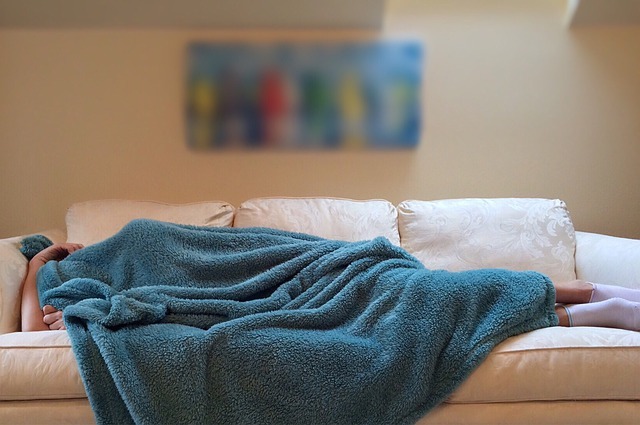Sleep apnea is a form of disturbed sleep characterized by irregular breathing patterns during sleep with many pauses and restarts in breathing.1
It not only affects sleep quality but also could be associated with troubled cognitive functioning affecting concentration, memory, decision-making, and executive function.1
Additionally, sleep quality has been attributed to a role in supporting physical health:1
- Healing and repairing the cardiovascular system
- Balancing the endocrinology system
- Regulating blood sugar levels
- Supporting growth and development
- Boosting the immune system
How can sleep apnea be detected?
Sleep apnea can be diagnosed by undergoing a sleep study1.
Polysomnography has been the gold standard of sleep assessments2.
But polysomnography presents some downsides: it is expensive, requires medical assistance, and is not performed in the usual sleep environment but in hospital or clinic settings.2
In recent years, wearable devices have been introduced as alternative sleep assessment tools to provide objective, unbiased, high-adherence, day-to-day measurements.2
In healthy subjects assessed in a clinic setting the Fitbit Charge 2 showed promising results comparable to polysomnography.3
In 2018, the American Academy of Sleep Medicine stated that despite the potential of consumer sleep technologies, there is a need for validation and FDA oversight before they can be used for the diagnosis and treatment of sleep disorders.4
Can Fitbit detect sleep apnea?
The question of whether Fitbit can detect sleep apnea has been addressed in different studies.
A recent study conducted on 65 adult patients with obstructive sleep apnea compared Fitbit Charge 2 and Fitbit Alta HR to polysomnography.2
The results of this validation study were:
- an acceptable level of sensitivity for both Fitbit models
- a poor level of specificity for both Fitbit models
Another study attempted to validate the Fitbit Charge in a pediatric population with obstructive sleep apnea of 22 patients.5
The validity of Fitbit was limited by the fact that an overestimation of total sleep time was noted.5
Similarly, the Normal Fitbit Ultra mode has been tested in a pediatric population and similarly, good sensitivity and accuracy were found but poor specificity and overestimation of total sleep time and sleep efficiency in 63 pediatric patients.6
In the same population, the Sensitive Fitbit Ultra mode showed acceptable specificity, but sensitivity and accuracy were underestimated for total sleep time and sleep efficiency.6
A recent systematic review assessing the accuracy of Fitbit models in sleep assessment concluded that these devices have some promising potential in sleep staging (i.e., differentiation of sleep from wake state), but produce gross estimates often resulting in poor specificity for clinical applications.7
Despite the promise and potential advantages wearable devices such as Fitbit could offer, more work is needed before implementation in clinical practice can occur.4
- Quality improvement has to be achieved
- Standardized algorithms have to be developed
- Healthcare professionals have to be engaged throughout the development and implementation process
- Clinical validation data have to be collected
- FDA regulations have to be developed
Therefore, current guidelines do not support Fitbit detecting sleep apnea.4,7
Different conclusions are premature for now.4
References
1. Sleep Apnea https://www.nhlbi.nih.gov/health/sleep-apnea
2. Moreno-Pino, F., Porras-Segovia, A., López-Esteban, P., Artés, A., & Baca-García, E. (2019). Validation of Fitbit Charge 2 and Fitbit Alta HR Against Polysomnography for Assessing Sleep in Adults With Obstructive Sleep Apnea. Journal of clinical sleep medicine : JCSM : official publication of the American Academy of Sleep Medicine, 15(11), 1645–1653. https://doi.org/10.5664/jcsm.8032
3. de Zambotti, M., Goldstone, A., Claudatos, S., Colrain, I. M., & Baker, F. C. (2018). A validation study of Fitbit Charge 2™ compared with polysomnography in adults. Chronobiology international, 35(4), 465–476. https://doi.org/10.1080/07420528.2017.1413578
4. Khosla, S., Deak, M. C., Gault, D., Goldstein, C. A., Hwang, D., Kwon, Y., O’Hearn, D., Schutte-Rodin, S., Yurcheshen, M., Rosen, I. M., Kirsch, D. B., Chervin, R. D., Carden, K. A., Ramar, K., Aurora, R. N., Kristo, D. A., Malhotra, R. K., Martin, J. L., Olson, E. J., Rosen, C. L., … American Academy of Sleep Medicine Board of Directors (2018). Consumer Sleep Technology: An American Academy of Sleep Medicine Position Statement. Journal of clinical sleep medicine : JCSM : official publication of the American Academy of Sleep Medicine, 14(5), 877–880. https://doi.org/10.5664/jcsm.7128
5.Hakim, M., Miller, R., Hakim, M., Tumin, D., Tobias, J. D., Jatana, K. R., & Raman, V. T. (2018). Comparison of the Fitbit® Charge and polysomnography for measuring sleep quality in children with sleep disordered breathing. Minerva pediatrica, 10.23736/S0026-4946.18.05333-1. Advance online publication. https://doi.org/10.23736/S0026-4946.18.05333-1
6. Meltzer, L. J., Hiruma, L. S., Avis, K., Montgomery-Downs, H., & Valentin, J. (2015). Comparison of a Commercial Accelerometer with Polysomnography and Actigraphy in Children and Adolescents. Sleep, 38(8), 1323–1330. https://doi.org/10.5665/sleep.4918
7. Haghayegh, S., Khoshnevis, S., Smolensky, M. H., Diller, K. R., & Castriotta, R. J. (2019). Accuracy of Wristband Fitbit Models in Assessing Sleep: Systematic Review and Meta-Analysis. Journal of medical Internet research, 21(11), e16273. https://doi.org/10.2196/16273
Image by Wokandapix from Pixabay
Relevant topics that may be of interest:
- Can Fitbit detect AFib?
- Can Fitbit Measure Blood Pressure?
- How accurate is Fitbit sleep?
- Can Fitbit Help with Diabetes?
- Fitbit Charge 2 shows promise for clinical sleep tracking
- How does Fitbit track calories burned?
- How does Fitbit track sleep stages?
- Accuracy of Fitbit step counter
- Does the Fitbit Charge 2 accurately measure heart rate?



